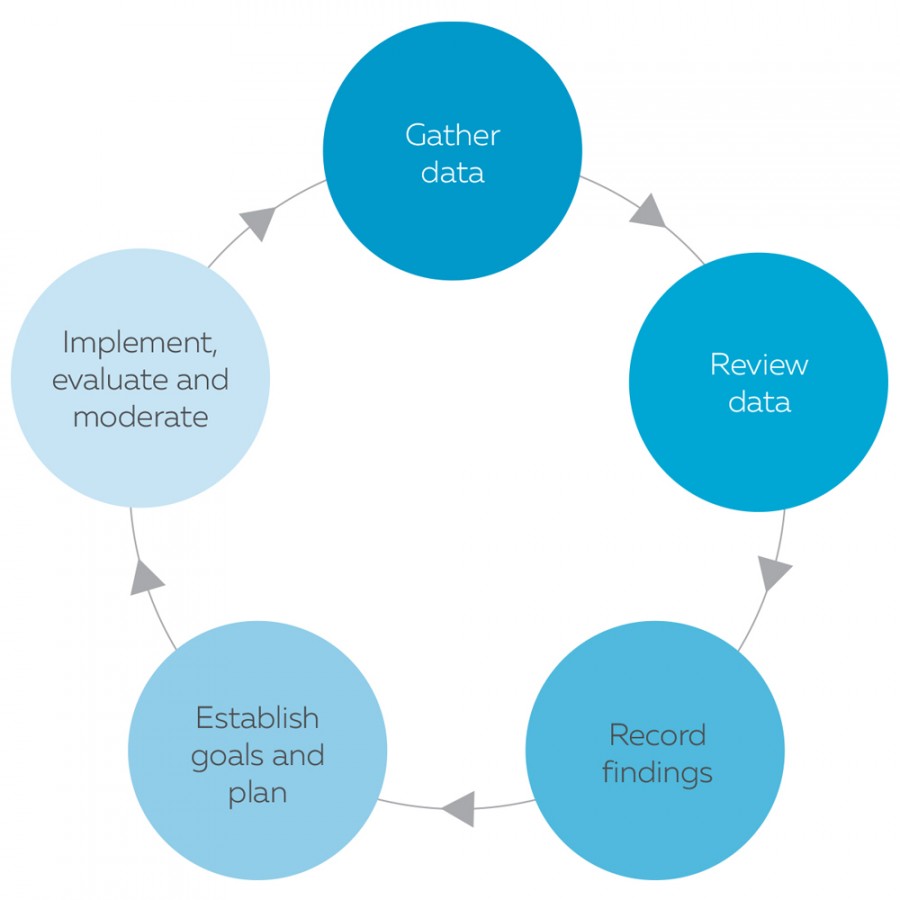Tertiary benchmarks self-review
The benchmarks are a flexible self-review tool that enables tertiary organisations to use the approach that best suits their needs.
What's on this page?
Suggested approaches
Tertiary organisations have chosen a number of ways to self-review career development systems and services. There are three self-review approaches suggested:
Baseline approach
Involves an evidence-based audit of career development across the three input dimensions: employer and industry engagement, student engagement and organisation engagement.
Dimensional approach
Involves choosing one dimension, eg, student engagement, and auditing it in isolation from the other two. This may involve an intentional three-year plan, where all dimensions will be reviewed during this time-frame.
Thematic approach
Involves selecting a theme, eg, building strategies for Māori students’ career development, and self-assessing against assessment statements drawn from across dimensions and related subcategories.
For more information, see the tertiary benchmarks and its supporting resources.
Self-review tips
- Take a team approach – this will ensure you develop an organisation-wide culture and the ownership is shared.
- Don’t rush the process – the dialogue is important.
- Choose a self-review process that best meets the needs of your organisation.
- Use the start point check sheet and self-review dimensions template to assess your career development programmes and services.
- Establish goals – make them SMART (specific, measurable, achievable, relevant and time-bound) and link them to specific sub-categories.
- Developing a SWOT analysis is also an excellent starting point.
- Be mindful of gathering supporting evidence.
- You may want to focus on one part of a dimension at a time.
- Include timeframes for review and how you are going to do this.
- Be realistic with your action plan, checking that it reflects the organisation-wide concept.
- Review and evaluate progress regularly.
- Ensure you share and engage with your teams.
- Keep in mind the end goal is building the student career management competencies.
Feedback
Are you interested in sharing examples of effective practice in your organisation? We are looking for specific examples linked directly to the benchmarks so tertiary organisations can learn from each other about the different ways of developing practice. To share your story or give feedback, please email us at careers@careers.govt.nz.
Updated 21 Dec 2016
